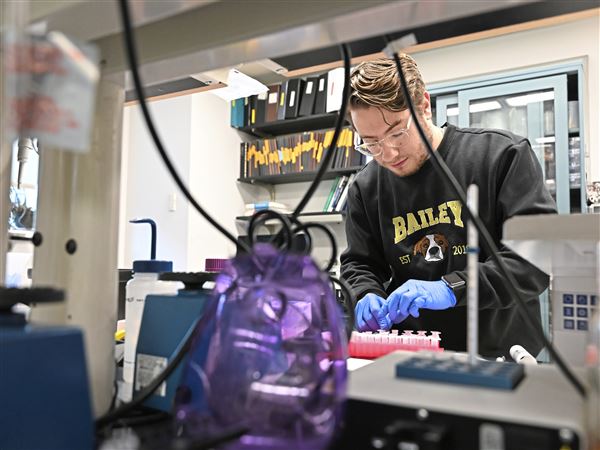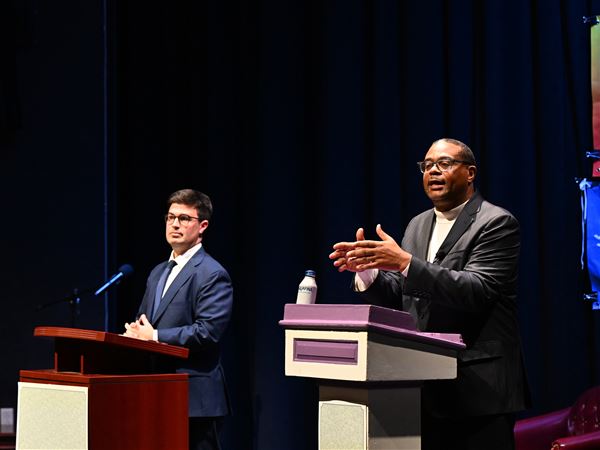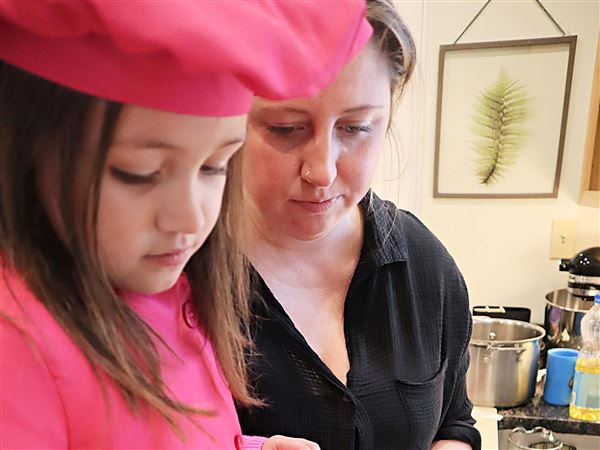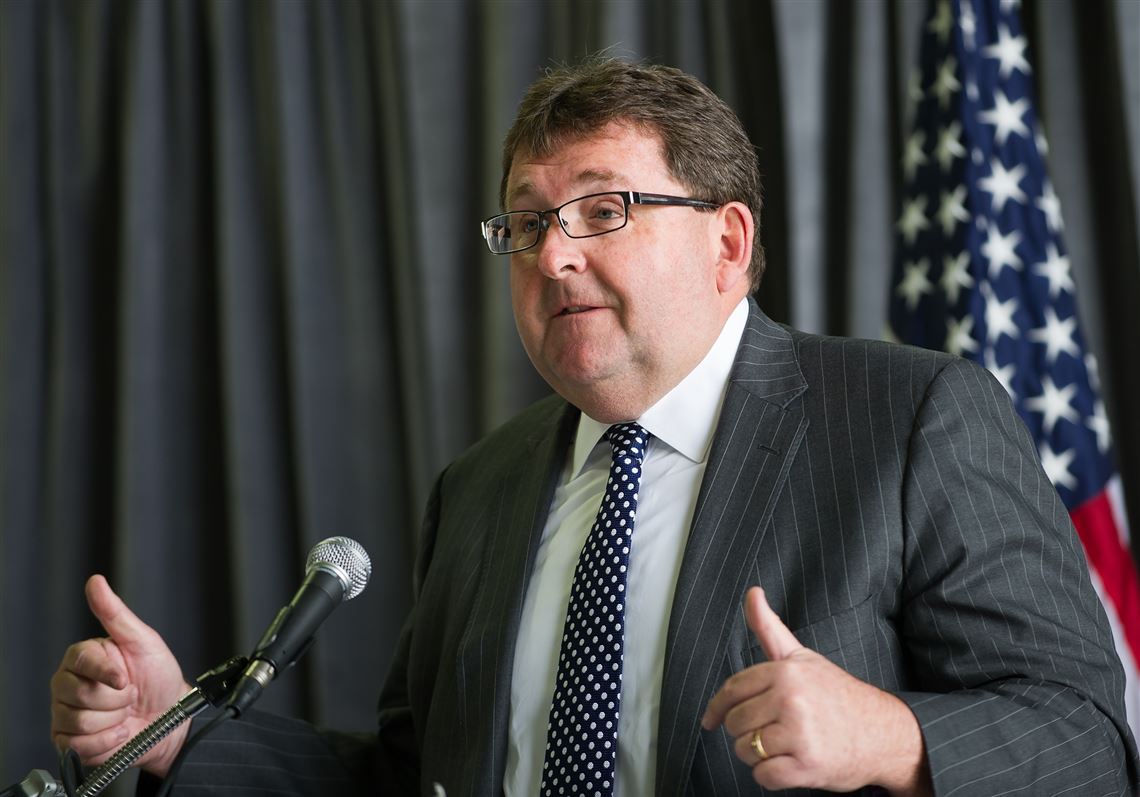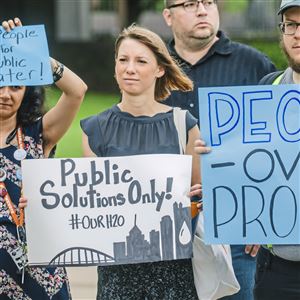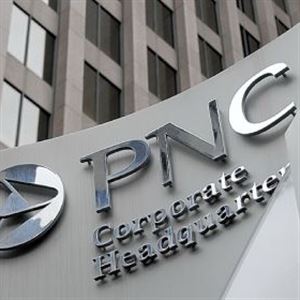Peoples Natural Gas isn’t giving up on Pittsburgh’s biggest water supplier.
A year after attempting a management deal for the Pittsburgh Water and Sewer Authority, the North Shore-based gas company met privately this month with city council members, Peoples and city officials confirmed Thursday.
The company doesn’t want to buy PWSA, but to explore partnership possibilities for infrastructure work in the city, Peoples spokesman Barry Kukovich said. He wasn’t certain if Peoples still wants a managerial role at PWSA, he said. CEO Morgan O’Brien wasn’t immediately available.
“We want to see [PWSA] be successful. It’s important to the city. It’s important to us,” Mr. Kukovich said. “I think there’s so much synergy here. We’re in the same trenches. They’re repairing lines; we’re repairing lines.”
Five council members — Anthony Coghill, Deborah Gross, Theresa Kail-Smith, Corey O’Connor and Erika Strassburger — confirmed individual meetings or conversations with Peoples CEO Morgan O’Brien, each held at the company’s request. Members said discussions were non-committal and that they remain open to different ideas for strengthening and organizing PWSA, beset by nearly $1 billion in debt and decades of lackluster upkeep.
Mr. O’Brien “did say say that they believe [Peoples] could replace both the gas and water lines simultaneously at a savings to the ratepayers,” Mrs. Kail-Smith said.
Her meeting lasted only 10 to 15 minutes, with Mr. O’Brien signaling interest in bidding to work with PWSA, she said. Peoples is the region’s biggest natural gas utility.
Mr. O’Connor said his conversation involved how Peoples “could possibly offer assistance to the city.” He helped initiate the meeting because he had unrelated matters to discuss, he said.
Mr. Coghill and Ms. Strassburger wouldn’t delve into many specifics of Mr. O’Brien’s private presentations — “I was told to keep it under tabs for now,” Mr. Coghill said — but emphasized that discussions over PWSA will continue. Ms. Gross issued a statement saying in part: "Our water system is not here to generate profits for Wall Street nor for Peoples Gas."
“I think it’s really important that we have a very transparent, very public and open process,” Ms. Strassburger said. “If any of this is going to be considered by the city, by council members, by the mayor, it has to be open, transparent and very public. That’s my first priority, and it has to happen immediately.”
Both Mr. O’Connor and Mr. Coghill said they’ve heard from other private-sector companies — such as Pennsylvania American Water Co. and Aqua Pennsylvania — with interest in PWSA. Pennsylvania American “would welcome the opportunity to talk about solutions” to Pittsburgh’s water issues, the firm said in a statement. Aqua didn’t immediately comment.
“To me, private industry always functions better than public utilities. Always,” Mr. Coghill said. “They’re more responsible to customers because they’re looking at the bottom line.”
He pointed in part to Pennsylvania American, which supplies drinking water to his south Pittsburgh district and adjacent neighborhoods. “They’re quite the contrary to PWSA.”
High-profile problems including lead contamination, water main failures and boil-water advisories have intensified public scrutiny of PWSA over the past couple years. Lawmakers agreed in 2017 to move the utility under the oversight of the Pennsylvania Public Utility Commission, or PUC.
Meanwhile, Mayor Bill Peduto appointed a a blue-ribbon panel explore restructuring options for PWSA. Council is working through how best to reorganize board governance to prevent future failures. A public hearing on that subject has yet to be scheduled.
In a statement, Peduto spokesman Timothy McNulty said the administration “has nothing to do with talks [that] private companies have with council members.” The Pittsburgh Post-Gazette reported in February that Peoples tried for months to curry support within the Peduto administration, floating a pitch worth more than $1 billion to help restore and operate the city-owned water system.
“When it comes to PWSA, we’re focused on governance, lead line replacements and orthophosphate,” Mr. McNulty said. PWSA plans to introduce the additive this year to better prevent lead contamination.
Mr. Peduto has pledged to maintain public ownership of the water infrastructure, including delivery pipes and a treatment plant in Aspinwall. He hasn’t ruled out private-sector involvement as PWSA tackles system needs, projected to top $2 billion.
Any moves in that vein would follow a “fair and open” process to request and evaluate formal proposals, the mayor has said. Council members on Thursday echoed the desire to retain public ownership. They vary on the idea of private involvement in management, but none reached by the Post-Gazette on Thursday rejected the concept outright.
"It's going to take billions -- not millions but billions of dollars to modernize our plant and the pipes that run through our city," Councilman Ricky Burgess said. Still, "we have to make sure the asset stays in local control. No one is more motivated to protect the residents than us."
At PWSA, Executive Director Robert Weimar said the authority is investing more than $40 million in 2017 to replace lead service lines and improve anti-lead water treatments. He said the staff is making strides to strengthen the entire organization, which has increased spending for system upgrades.
Meeting expectations under the utility commission will make PWSA equal to — or better than — any other public utility, Mr. Weimar said.
“We are confident we can fulfill the expectations of the citizens, our ratepayers and the PUC,” he said.
Adam Smeltz: 412-263-2625, asmeltz@post-gazette.com, @asmeltz.
First Published: May 24, 2018, 8:00 p.m.
